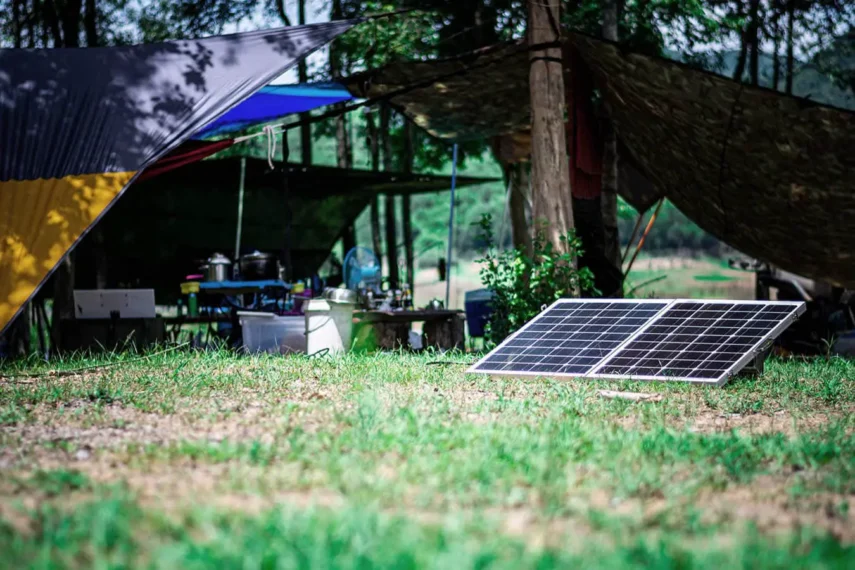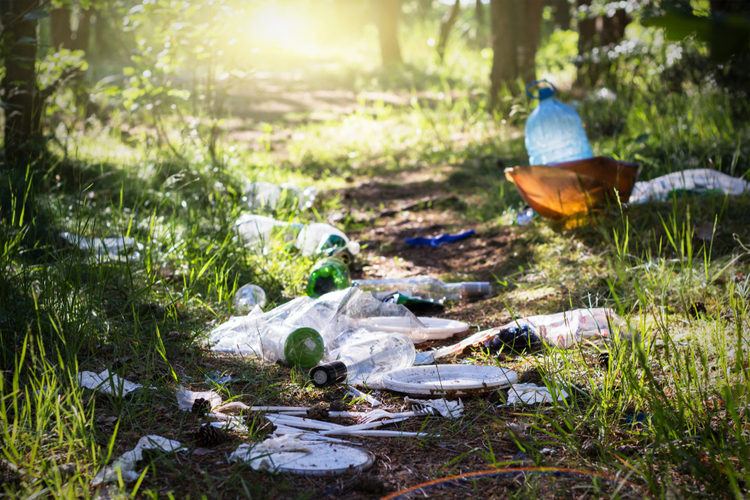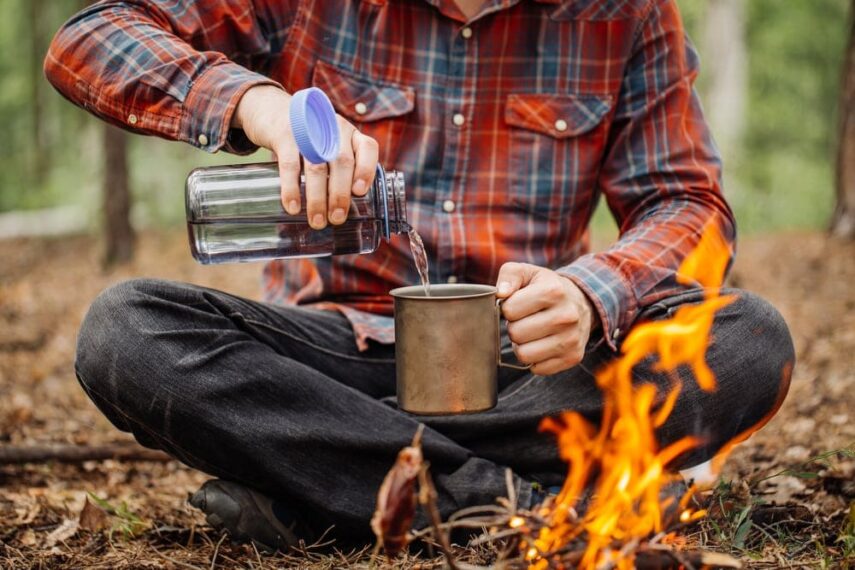Make your next camping trip the most sustainable yet by making eco-friendly choices. Camping is about going on an adventure while getting up close and personal with the beautiful nature around you. To ensure that natural beauty can be appreciated for years, seek a greener, cleaner way to vacation.
1. Choose The Right Power

Camping might be about getting into nature, exploring, and having an adventure solo or with loved ones, but plenty of people still want to be in touch with the world. Campers often need access to a working cell at the very least, meaning the ability to charge devices is crucial.
Gone are the days when you must leave your car running to power your many devices. Nor do you need gas or electric generators that make loud noises or pollution. Now, with the sun’s power, you can get clean, green energy with solar generators, like these from EcoFlow.
You can collect, store, and power with clean energy that won’t harm the environment. And beyond your trip, they’re the perfect device to have at hand back home.
2. Choose A Good Location
Exploring is fantastic, but traveling miles in a petrol car isn’t. So, consider staying more local for your next trip for a greener vacation.
Perhaps you’ve been longing to travel to a more remote location, and that’s fine, but stay local to the area you travel to. Make sure you can explore your surroundings by walking, cycling, or bus so that once you arrive, you keep CO2 emissions to a minimum.
If you travel by SUV, you should be aware that you, more than most, must keep your travel distance to a minimum due to an SUV’s catastrophic environmental impact.
3. Prep, Don’t Buy
If you prep your meals before you go on your vacation, you won’t need to buy produce with unhelpful wrappings like plastic. Plus, it’ll save you money in the process. So with some planning, you can reduce the need for power to cook the food and the potential of littering and contributing to a landfill.
4. Say Bye To Plastic

Plastics are bad for the environment because they produce toxins in landfill sites that end up in our water, food, and, ultimately, our bodies. To avoid microplastics and help the environment, avoid buying food wrapped in plastic and use a reusable stainless steel bottle. That way, you won’t be purchasing countless numbers of single-use plastic, and it will save you money!
There are loads of great ways to reduce your plastic intake. If you need to buy supplies while you camp, consider the following:
- Taking a reusable bag (bag for life)
- Only buying fresh produce (without wrappings)
With determination and research, it’ll be easier than you imagined.
5. Respect Wildlife and Nature
When embarking on a camping adventure, it is crucial to remember that you are a guest in the natural habitat of various wildlife species. Respecting and preserving their environment is essential for their well-being and the overall ecological balance. Here are some key practices to ensure you respect wildlife and nature during your camping trip:
Observe wildlife from a distance and refrain from feeding or approaching them
- Enjoy the beauty of wildlife from afar, using binoculars or a camera with a zoom lens.
- Do not attempt to feed or touch wild animals, as it disrupts their natural behavior and can be harmful to their health.
- Keep in mind that human food is not suitable for wildlife and can lead to dependency and aggressive behavior.
Stay on designated trails and avoid damaging vegetation
- Stick to established trails and paths to minimize your impact on fragile ecosystems.
- Avoid stepping on vegetation, especially in sensitive areas such as meadows or wetlands.
- Be mindful of the natural surroundings and take extra care when setting up camp or sitting down to avoid damaging plants or disturbing wildlife habitats.
Dispose of waste properly, including food scraps, to avoid attracting animals
- Always pack out what you pack in. Bring garbage bags and make sure to properly dispose of any waste, including food scraps and packaging.
- Avoid leaving any trace of food or waste at your campsite that could attract animals. Use bear-resistant containers if necessary.
- Never bury or burn trash, as it can harm the environment and wildlife.
By respecting wildlife and nature, you contribute to the preservation of natural ecosystems and help maintain the delicate balance of the environment. Remember, the goal is to leave the wilderness as untouched as possible so that future generations can also experience its wonders.
6. Conserve Water

Water is a precious resource, especially when camping in nature where access to clean water may be limited. Conserving water not only ensures that you have an ample supply throughout your camping adventure but also reduces your environmental impact. Here are some effective ways to conserve water while camping:
Use water sparingly and avoid wastage
- Be conscious of your water usage by turning off taps tightly to prevent leaks and drips.
- Take shorter showers or consider using wet wipes and dry shampoo to conserve water.
- When washing dishes, use a basin or collapsible sink to minimize water usage instead of letting the faucet run continuously.
Bring a water filtration system or purification tablets to reduce reliance on bottled water
- Instead of relying solely on bottled water, invest in a portable water filtration system or carry water purification tablets.
- These devices and tablets can effectively treat water from natural sources such as rivers or lakes, making it safe for drinking.
- By using these methods, you can minimize the need for single-use plastic bottles and reduce waste.
Utilize eco-friendly products for personal hygiene and cleaning
- Choose biodegradable and environmentally friendly soap, shampoo, and detergents.
- Look for products specifically labeled as safe for the environment and avoid those containing harmful chemicals.
- When cleaning dishes or personal items, use minimal amounts of these products to reduce their impact on the surrounding ecosystem.
Remember, every drop of water counts when camping sustainably. By being mindful of your water usage, you not only conserve this precious resource but also contribute to the preservation of nature’s delicate balance.
Final Thoughts
Camping is an excellent opportunity to put your green fingers to the test! Make sure you find time before your next trip to prepare and pledge to be sustainable so the nature around you can be enjoyed for years to come!







